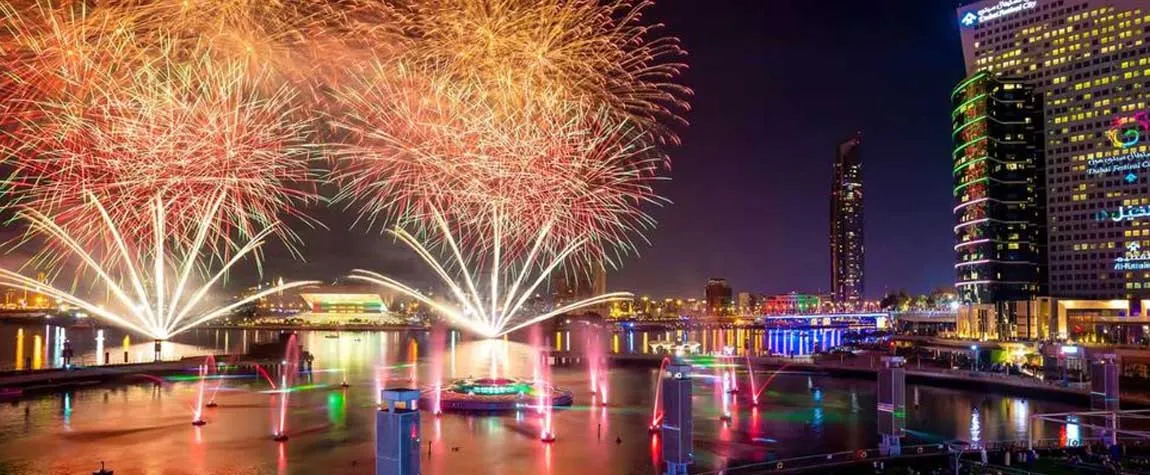Eid Al Fitr holiday: UAE residents were able to get up to nine days off

In the United Arab Emirates (UAE), Eid al-Fitr is a highly religious and culturally important celebration that celebrates the conclusion of Ramadan, the Islamic holy month dedicated to reflection and fasting. UAE citizens frequently enjoy a longer holiday period in recognition of this happy occasion, giving them plenty of time to catch up with family, participate in group celebrations, and observe religious holidays. With up to nine days off, including weekends and public holidays, people may properly celebrate Eid Al Fitr throughout the Emirates over this extended break. This holiday season, which is marked by giving, thankfulness, and rebirth, promotes peace and unity among UAE citizens and represents the compassion and friendship that are deeply valued by the country’s population.
With an Abu Dhabi City Tour, set out on an unforgettable journey through the active centre of the United Arab Emirates. Every destination offers a window into the city’s rich cultural weave, from the impressive Sheikh Zayed Grand Mosque, an architectural wonder covered in exquisite Islamic art, to the luxurious Emirates Palace, where luxury meets Arabian grace. Wandering along the Corniche, taking in the modern architecture of the Louvre Abu Dhabi, or taking a dining excursion around the busy streets—an Abu Dhabi City Tour promises a thrilling fusion of history, modernity, and hospitality that will attract visitors and beautify them with the attractions of this exciting city.
Here are the UAE residents who were able to get Eid Al Fitr holiday up to nine days off:
Pull out your planning calendars. In less than a month, the UAE will celebrate its longest public holiday of the year. April saw up to nine days off for residents in honour of the Islamic holiday Eid al-Fitr, which falls on the second full moon after the fasting month of Ramadan. This means that workers in the public and commercial sectors in the United Arab Emirates can take a lengthy vacation without using up their 30-day yearly leave.
The crescent-shaped moon, which marks the beginning of a month in the Islamic Hijri calendar, was observed in the United Arab Emirates on Sunday evening (March 10), defying astronomical calculations. Thus, March 11 became the official start of Ramadan.
Ramadan, like every other month in the Islamic calendar, has a duration of 29 or 30 days, depending on when the moon is visible. On the first of Shawwal, the month that follows Ramadan, people celebrate Eid al-Fitr.
The UAE government has declared a list of public and private sector holidays, and Eid Al Fitr will be observed by the locals from Ramadan 29 to Shawwal 3. If one observes a 30-day Ramadan, April 10 is Eid. April 9 is the Islamic feast if the month has 29 days in it.
Here is how the Eid al-Fitr holiday will pan out in both scenarios:
In the event that Ramadan lasts 30 days, Monday, April 8 (Ramadan 29), through Friday, April 12 (Shawwal 3), is when the Eid break falls. There will be a total of nine days off if you include the Saturday and Sunday weekends both before and after the vacation. From Saturday, April 6, to Sunday, April 14, is when the break will take place.
In the event that Ramadan lasts 29 days, locals will have six days off, including the weekend. From Monday, April 8 (Ramadan 29) until Thursday, April 11, there will be an Eid break. Six days off total if you consider the Saturday and Sunday weekend before the break. From Saturday, April 6, to Thursday, April 11, is when the break will occur.
After the first public holiday of the year, which falls on January 1, Eid break will be the second this year. The Islamic holiday of Eid Al-Adha will be observed next, with four days off for locals, with the exception of the weekend in June. There will be holidays celebrating the Prophet Muhammad’s birthday in September and the Islamic New Year on Muharram 1 in July. The UAE National Day celebrations on December 2 and 3 will be the final public holiday.
Conclusion:
The UAE’s commitment to respecting its rich cultural past and religious traditions is shown by the extended holiday period—up to nine days off—granted to its people for Eid al-Fitr. This kind of vacation gives people a chance to feel well, build relationships with family, and enjoy colourful celebrations that mark this important day. To enjoy the time spent with loved ones, UAE citizens underline the kindness, charity, and friendship that characterise their community as they join together to celebrate Eid al-Fitr. The UAE expresses its commitment to promoting inclusive, respectful, and peaceful communities among various populations by offering this extended holiday.
Read More: The top 6 best places for iftar in Abu Dhabi for Ramadan
